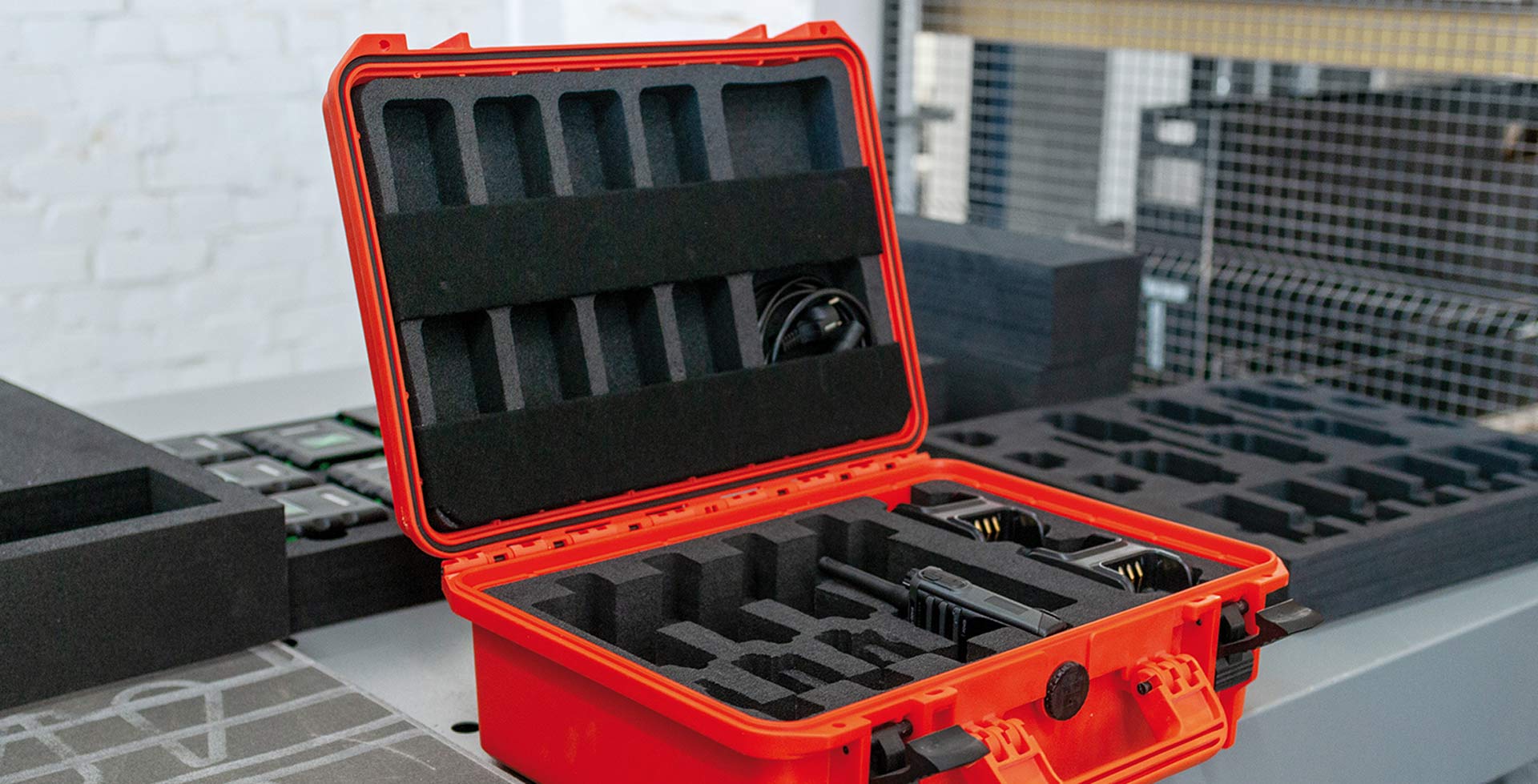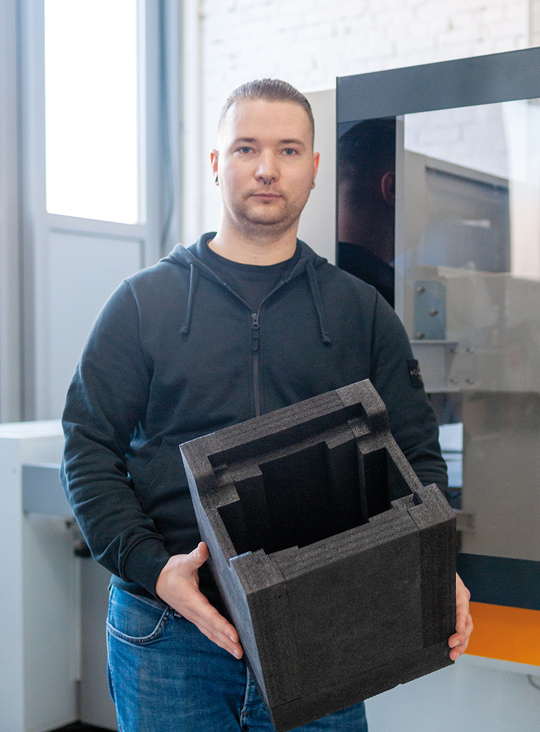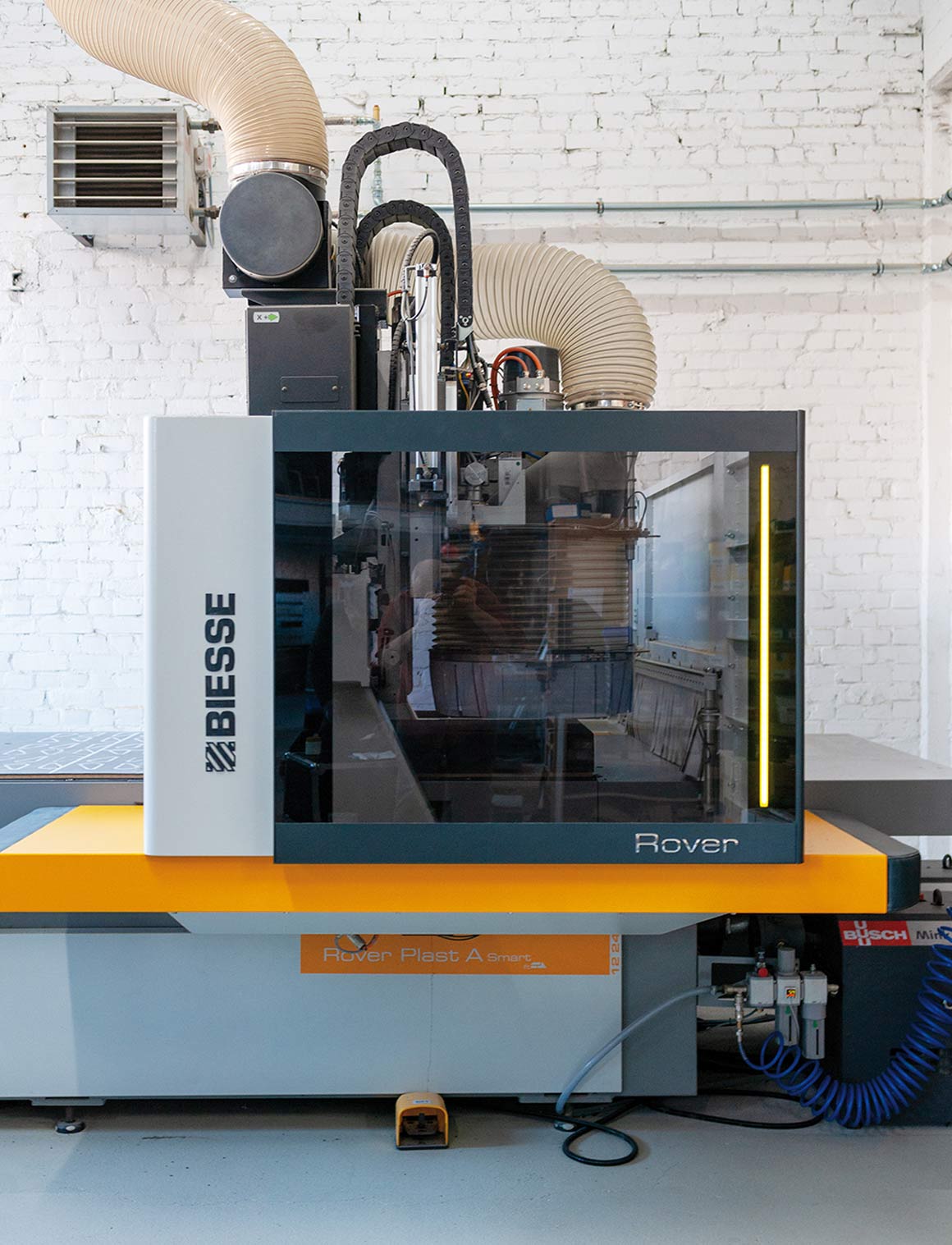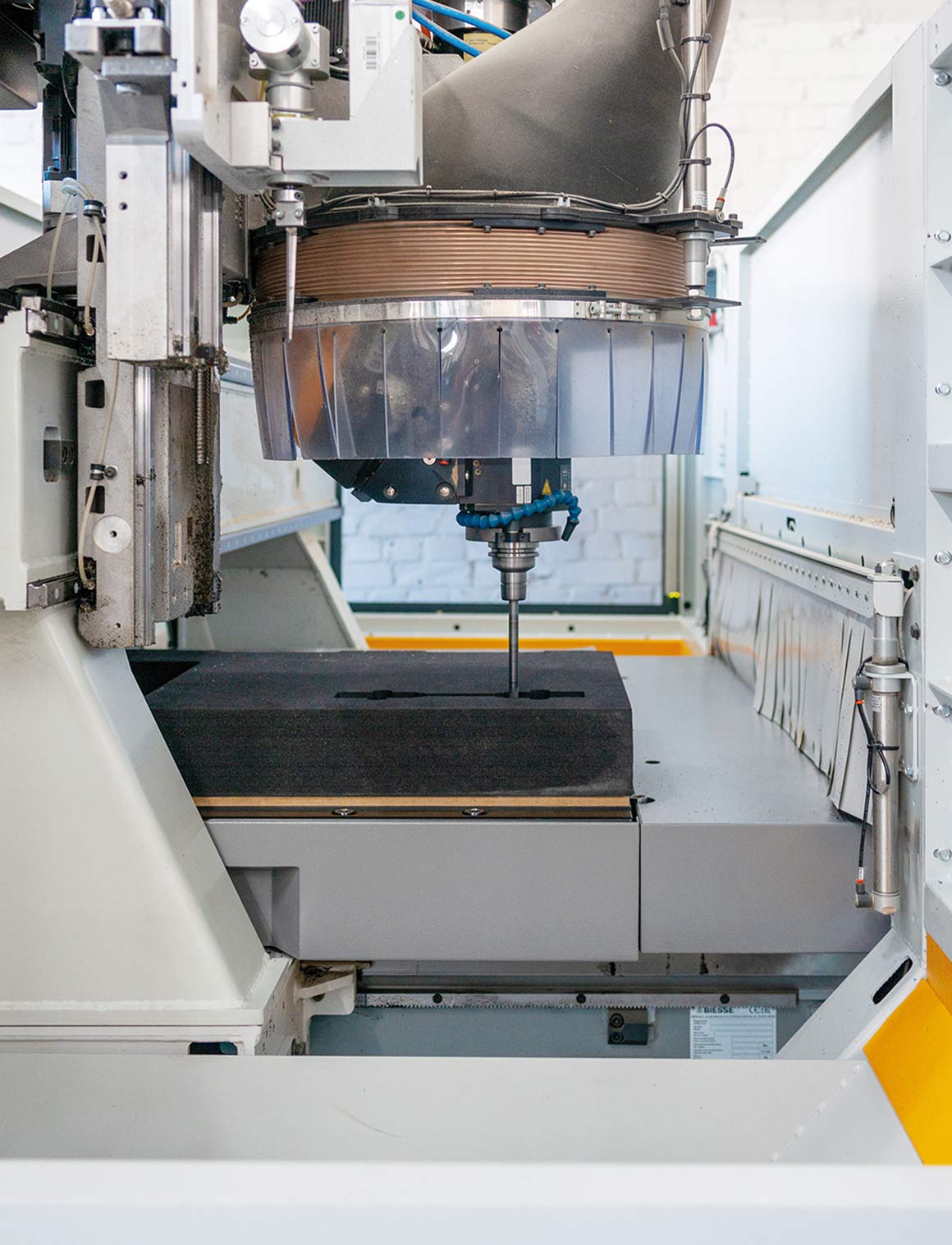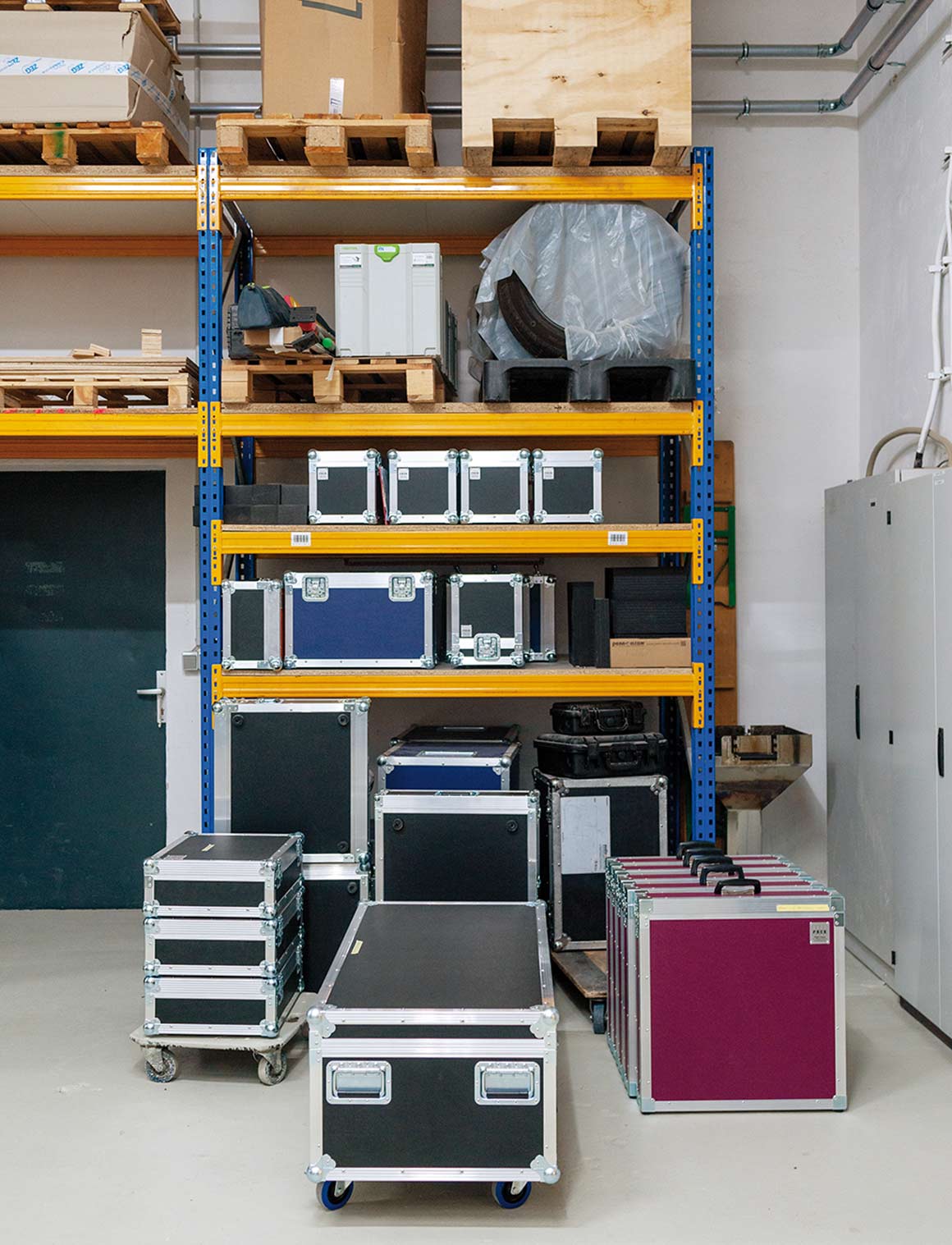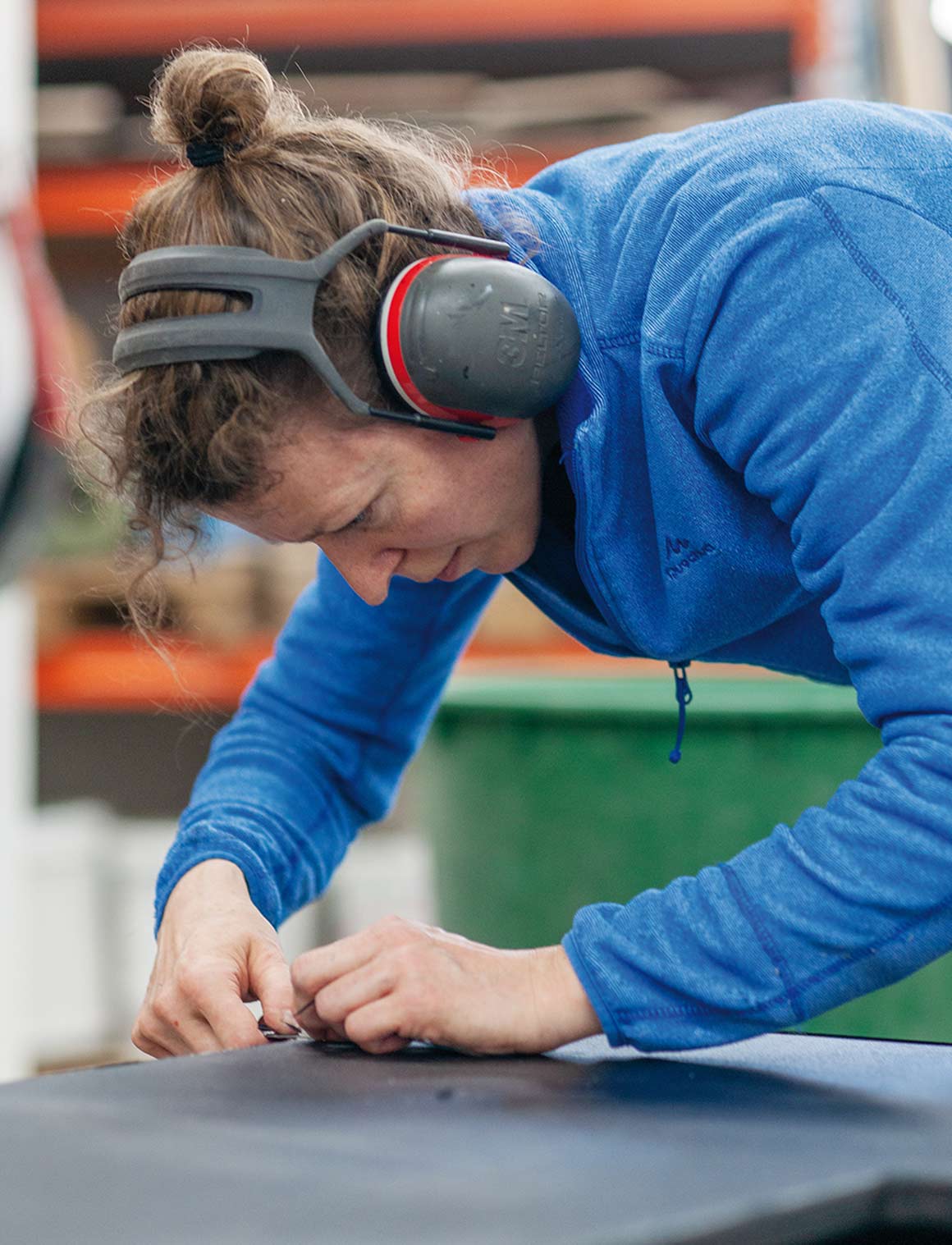The Berliners have been active in case construction for the event industry since 1987. First as a subsidiary of PAM Veranstaltungsgesellschaft, now as a separate company in which the two managing partners Holger Huth and Ruven Kempgen are rely at the helm. The affnity to the event industry is not only re ected in the product portfolio, but also in the location: since 2019, the packaging specialist has been producing on 1,000 m² of space in Pankow Park, the former site of the Bergmann-Borsig factory.
A microcosm of ist own
Where components for power plants were produced in GDR times, an event hot spot has developed today. The band Rammstein has its warehouse around the corner, the event technology company Black Box Music is right next door, and the Palastorchester is currently preparing for its next performance in the rehearsal rooms on the site. Ruven Kempgen explains: “We are very close to our customers here, have short distances and can react quickly to the needs of artists, tour entrepreneurs and event managers.” In keeping with this philosophy, the case builder delivers the lion's share of its products within Berlin and the surrounding area. “We are highly specialised,” Kempgen explains. “We share the business with a handful of case builders in Germany. They usually produce not only custom-made products, but also standard products. We, on the other hand, only produce one-offs.” Batch size 1 is not the exception for the Berliners, but often the rule. It does not go beyond batch size 50.
New CNC machine makes work easier
For each product, the specialists create an individual piece of packaging, adapted to the respective shape of the goods to be transported. If 3D models of the goods to be transported are available, Kempgen feeds them into the CAD software Solid Works. Often, however, they are not available. Kempgen smiles: “Then I measure by hand in a very old-school way and also transfer the measured values into the software by hand.” Based on this, the Berliners design the foam inlays that then line the inside of the case. When travelling by air, hollow-chamber PVC honeycomb panels are usually the material of choice. They are light, stable, and ame-retardant. P.A.C.K. processes panels with dimensions of 2,500 x 1,250 mm, which it splits in half with a separating cut before further processing. The thickness is 7 or 10 mm – depending on the weight of the transported goods. The new Rover Plast FT 1224 portal CNC machine from Biesse has been in use since 2020. The company has already been working with a Rover A 1332 ATF for wood processing from Biesse since 2012. According to Ruven Kempgen, one of the reasons for also relying on Biesse for plastics processing was: “We have had very good experience with the machine, and we can also use the same interface for transferring the data from the CAD programme for the new machine. The new Rover then runs the programme fully automatically. Especially the fact that we have the oscillating knife on the second Z-axis makes the work much easier.”


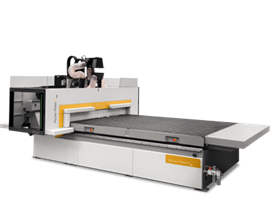
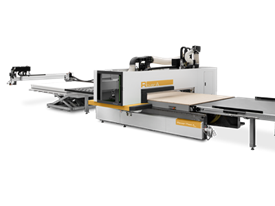
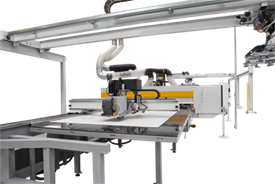
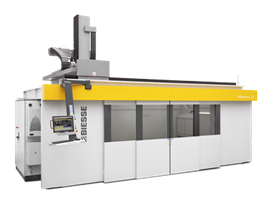
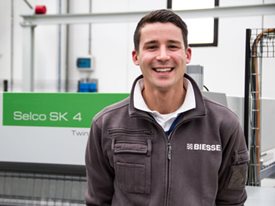
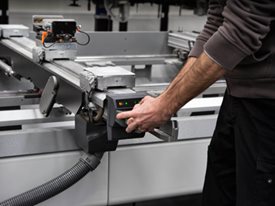

 Worldwide
Worldwide
 Italia
Italia
 United Kingdom
United Kingdom
 Россия
Россия
 France
France
 中国
中国
 Asia
Asia
 Deutschland
Deutschland
 España
España
 Schweiz
Schweiz
 North America
North America
 India
India
 Australia & New Zealand
Australia & New Zealand
 Türkiye Cumhuriyeti
Türkiye Cumhuriyeti
 Middle East
Middle East
 Brasil
Brasil
